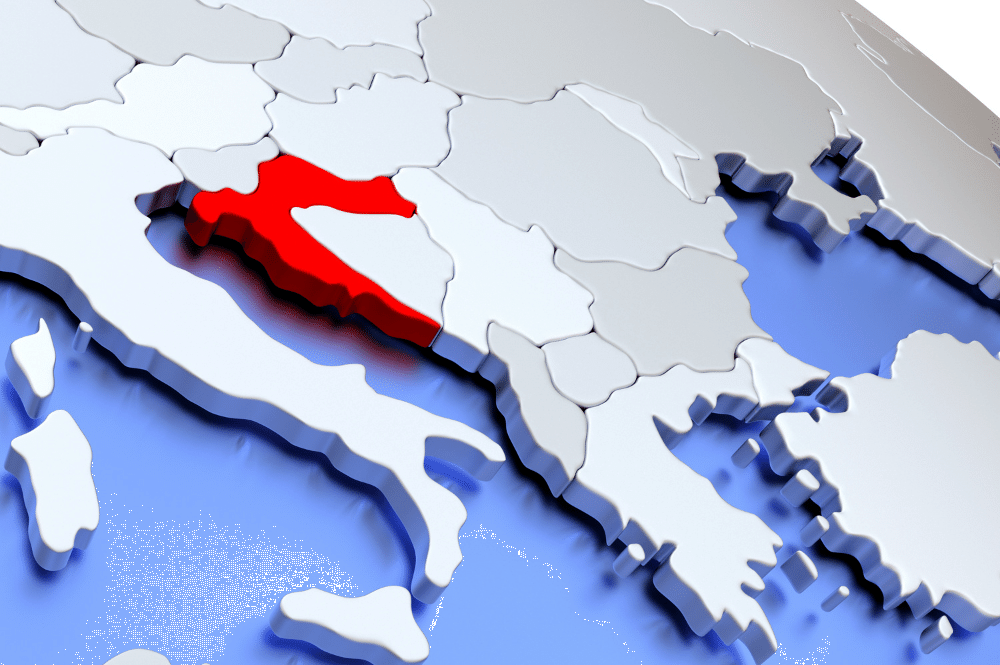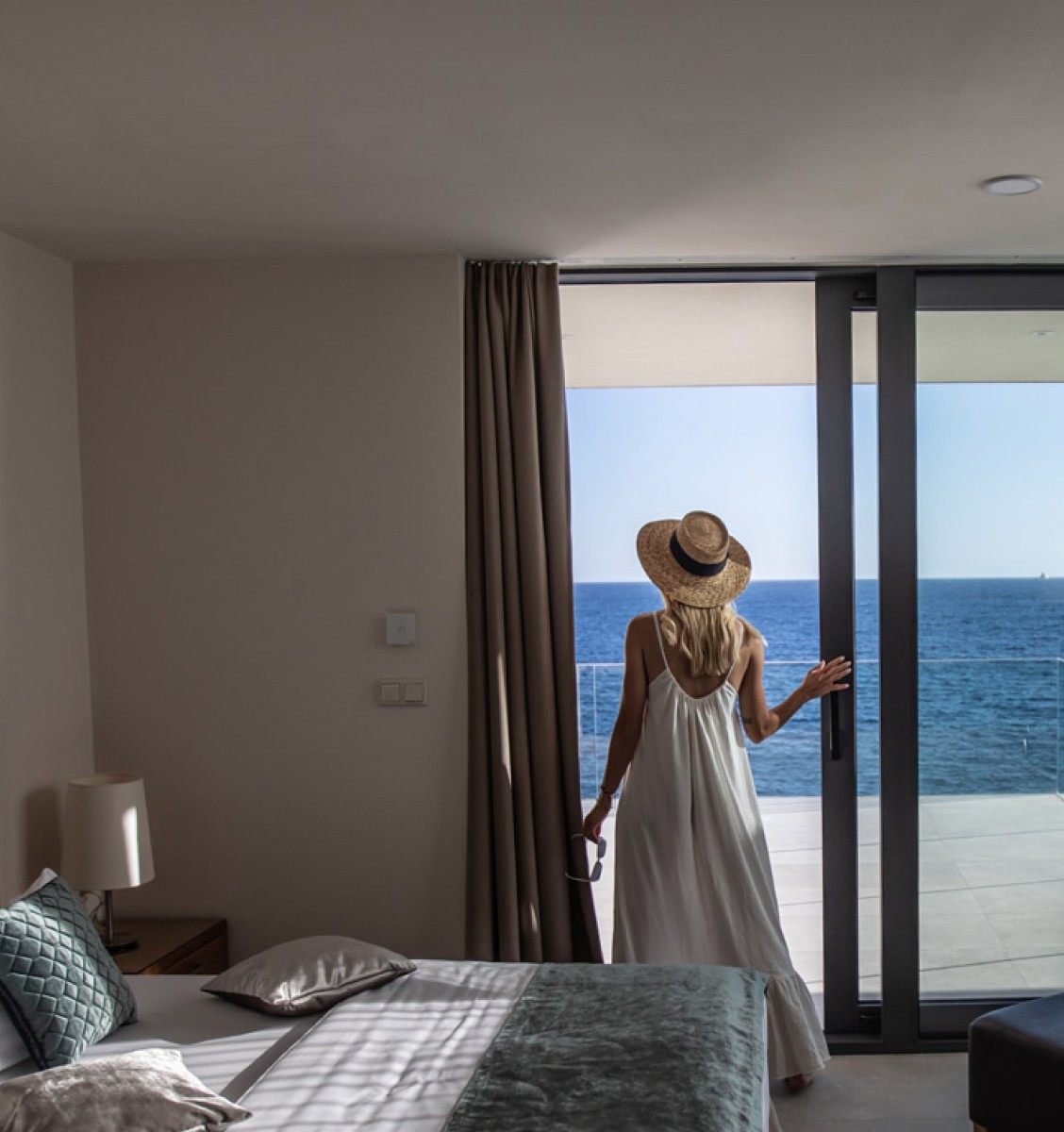Table of contents
- Facts about the Croatian language
- Croatian phrases for courtesy and repentance
- Croatian phrases for greetings
- Basic Croatian phrases for travellers who need help
- At the bar or in the restaurant
- Croatian phrases about love
Visiting Croatia is certainly a great idea. There is a whole lot to see and explore, both when it comes to incredible feats of nature and fascinating sights, many of which go back all the way to the time of ancient Rome, or even beyond. There’s also great food you can enjoy, and the locals are incredibly friendly to anyone who visits.
However, it pays to learn a few phrases of Croatian. Not only will it help you find your way around whichever place you’re visiting, but the people will immediately open up to you and be ready to participate in a conversation because they appreciate the effort that goes into learning a language that is to many tourists quite foreign and even somewhat exotic.
That being said, most people do speak English at least at the basic level, so even if you don’t know any Croatian, you should be fine, but if you really want to impress your hosts, here are some useful Croatian phrases to learn.
Facts about the Croatian language
The Croatian language belongs to the group of Slavic languages, and as such can be quite tricky for people coming from, for example, the United States, France, Germany or the United Kingdom. It is the official language in Croatia and one of the official languages in Bosnia and Herzegovina, too. Naturally, since Croatia is a part of the EU, it is also an official language of the Union.
You may be shocked to know that Croatian has seven different cases, more than what many other languages ask of you to learn, which is one of the main reasons why non-native speakers sometimes find it challenging to master the language completely. However, with the phrases we teach you in this article, you don’t have to worry about that.
The Croatian language is very similar to the languages spoken in the neighbouring countries. In fact, the languages of Croatia, Serbia, Bosnia and Herzegovina, and Montenegro are sometimes even classified as the same, Serbo-Croatian language. People from these countries understand each other pretty much perfectly, so the phrases we teach you here can help you out across the border, too. So, let’s get to it!

Croatian phrases for courtesy and repentance
We will first start with a few phrases that are important if you want to be polite. These can be used on pretty much any occasion, so knowing them can help you make a better impression or start up a conversation easier.
The word hvala (pronounced hvah-la) is probably the most important one in this category as it means “thank you”. It can come in a bunch of other phrases such as hvala lijepa (“thank you very much”), hvala puno (“thanks a lot”) etc, but no matter what follows it, hvala never changes its basic meaning. So, whenever a service is provided to you, it’s polite to say this one little word.
Oprostite (oh-‘proh-stee-teh) is another very common expression. It can be used to get someone’s attention in order to start a conversation with them, like the expression “excuse me” is used in English. However, it can also be used if you’re apologizing to someone for some minor mistake such as bumping into a person as you’re looking at your smartphone in an attempt to find directions. You will also often hear oprosti, which is pretty much the same thing.
Another way to express regret for something is to say žao mi je (zhao me ye). This literally means “I’m sorry”, so it can be used in a variety of situations. A good phrase to combine this with is ne govorim hrvatski (neh ‘goh-voh-reem ‘hrvah-tskee), which means “I don’t speak Croatian”. So, if anyone approaches you in the local language, combining these two phrases is a good way to get them to switch languages.
Croatian phrases for greetings
There are many ways to greet a Croat, which is essential if you want to get the conversation started smoothly. The simplest one is just bok (bohk), meaning “Hi”. Now, this is very much an informal greeting, mostly used between friends and acquaintances, but if you’re seeing someone for the first time and want to be more polite, a better way to greet them would be dobar dan (doh-bahr dahn), which means “good day” in Croatian.
This is a good way to introduce yourself to your host if you’re renting out a luxury villa in Croatia or some other form of private accommodation when you see them for the first time.
Here we have to mention two other similar phrases - dobro jutro (doh-broh yoo-troh) and dobra večer (doh-brah veh-che-r). These are the ways to say “good morning” and “good evening” in Croatian.
You can also say bok when you’re leaving your friends, maybe after a drink or something like that, and in this case, the meaning will be “bye”. Again, this is an informal way of doing things, so using doviđenja (doh-vee-‘jeh-nya) is better in a more formal setting. Use it when leaving a supermarket, any office or anything like that.
However, if it’s getting late and you’re going to sleep, say laku noć (lah-koo noch), which is a way to say good night in Croatian.

Basic Croatian phrases for travellers who need help
Unfortunately, accidents can happen on any vacation, so knowing how to react can be extremely important. Remember to call 112 in case of an emergency in Croatia.
The word upomoć (oo-poh-moch) is a cry for help, so you should yell that if you need immediate assistance from passers-by.
Bolnica means “hospital” in Croatian, and if you need emergency medical treatment this is where you need to go. If you need directions, ask Gdje je bolnica (gdye ye bohl-nee-tsa), Croatian for “Where’s the hospital?”
Možete li mi pomoći? (mozheteh lee me pomochee) is a very useful question to know because it means “Can you help me?” Using this usually means that you’re in need of some assistance, but you’re not in a life-threatening situation. Maybe you’re lost and need directions, for example.
A different kind of emergency is when you need to use the toilet. Ask Gdje je toalet? (toh-ah-let) to find out where the nearest toilet is.
At the bar or in the restaurant
Sitting down in a bar or going to a restaurant for lunch are specific social situations, so there are also some phrases that are good to know here. Also, you may notice that the Croats LOVE their cafes, especially in the coastal part of the country. For a truly Croatian experience, find a place near the sea, order a coffee and soak the scenery in.
Just say molim (moh-leem) after each item you order, and you will be much more polite to the waiter. For example, saying kava s mlijekom, molim will mean “Coffee with milk, please.”
And if you’re sitting down with a group of friends, you may find yourself in a situation where you’re raising your glass to something. Saying živjeli (zheev-ye-lee) is how you say cheers in Croatian, but you can also say uzdravlje (oo-zdrav-lye) to express the same thing.
Before starting a meal, you will usually say to everyone at the table dobar tek (doh-bar tek), which is Croatian for “Bon apetit”, and you will probably hear this from the waiter, too. You can respond to somebody else’s dobar tek by saying the same thing or by saying hvala, također (tuck-o-jer), which means “Thank you, you too.”
Once you’re done with your meal or drink and you want to pay, call the waiter over and say račun (ra-choon), molim. Račun is a bill, but if you’re looking to pay with a credit card, you should ask primate li kartice (pre-mah-teh lee car-tee-tse), and the waiter will immediately tell you the type of cards that are accepted. Gotovina (go-toh-vee-na), on the other hand, means cash.

Croatian phrases about love
Wouldn’t it be great to surprise your loved one with a few love phrases in Croatian? Especially if you’re here for your honeymoon or your anniversary. Or maybe you just fall in love with one of the locals, who knows. In any case, if you’re looking to make a romantic gesture, there are quite a few phrases that can help you.
Volim te (voh-leem teh) is how you say “I love you” in Croatian. It means exactly what you think it means, and saying this leaves no room for misunderstanding.
Jako si lijepa (ya-koh see lee-ye-pah) is something a man should say to a woman if he finds her attractive. Literally translated, it means “You are very beautiful”.
Mogu li te poljubiti (moh-goo lee teh pol-yu-bee-tee) means “May I kiss you”, and you can just feel the tension this question raises, can’t you? Fingers crossed the other person says yes!









